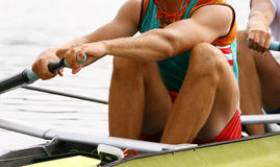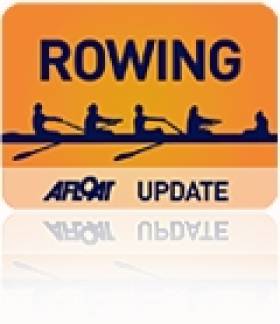Displaying items by tag: Cancellation
Athlone Cancels as Wind Claims Another Irish Rowing Regatta
#Rowing: Athlone Regatta has been cancelled. The weather forecast for Saturday in the area was for strong winds with gusts. The regatta is in its 49th year and this is the third time it has been cancelled for weather reasons. All those cancellations have come in the last six years. The 2018 rowing season has been marked by a succession of cancellations.
# ROWING: A decision will be made this afternoon on whether this weekend’s two big regattas at the National Rowing Centre will go ahead. The Skibbereen Regatta is fixed for Sunday and the Irish Universities and Schools’ Championships for Saturday, but both are in doubt because of the forecast of bad weather around the Co Cork venue.
New EU Passenger Rights for Sea & Inland Waterways
The European Parliament and European Council have formally adopted a regulation giving new compensation rights to passengers using water transport. The regulation is expected to come into force at the end of 2012.
"People are entitled to enjoy the same levels of quality and safety wherever they travel within the European Union. I am very glad that after introducing rights for air and rail passengers, we are now also able to introduce similar rights for passengers travelling by water" said Siim Kallas, Commission Vice President and responsible for transport.
The new regulation that will enable passengers travelling by sea and by inland waterways to enjoy the same rights wherever they travel in the European Union. The information can be viewed in full from the Irish Maritime Development Office (IMDO) website: www.imdo.ie
Below is a list of the new Passenger Rights.
•guarantee of reimbursement or rerouting in situations of cancellation or of delay at departure of more than 90 minutes;
•adequate assistance (such as snacks, meals, refreshments and, where necessary, accommodation up to three nights, with a financial coverage up to €80 per night) in situations of cancellation or delay at departure of more than 90 minutes;
•compensation, between 25% and 50% of the ticket price, in situations of delay in arrival or cancellation of journeys;
•non-discriminatory treatment and specific assistance free of charge for disabled persons and persons with reduced mobility both at port terminals and on board ships, as well financial compensation for loss or damage of their mobility equipment;
•minimum rules on information for all passengers before and during their journey, as well as general information about their rights in terminals and on board ships;
•establishment by carriers and terminal operators of complaint handling mechanism available to passengers;
•establishment of independent national bodies for the enforcement of the regulation, through, where appropriate, the application of penalties.
In addition further detailed information about passenger rights in all modes of transport can be found HERE.































































